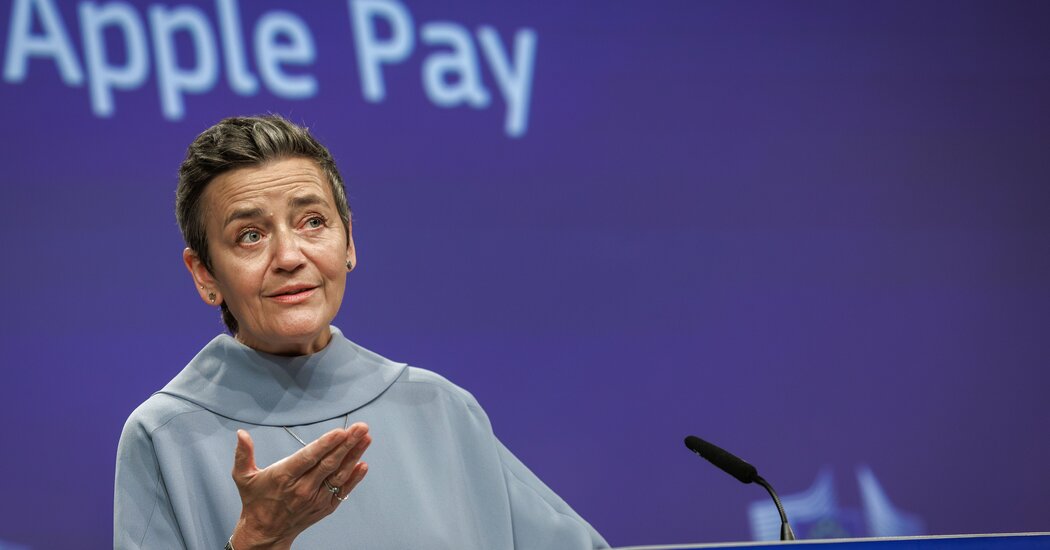Customers in Europe may see an influx of new apps and services for making tap-and-go purchases.
Apple will for the first time allow banks, payment services and other app developers to use the underlying technology behind Apple Pay to make rival tap-and-go payment services, settling a long-running European Union antitrust investigation, regulators said on Thursday.
The agreement applies only in the European Union, where consumers could see an influx of new apps and services to make payments on the go. Apple has until now refused to grant rivals access to the payment technology on iPhones, known as near field communication, essentially forcing people to use Apple Pay.
“Apple has committed to allow rivals to access the ‘tap and go’ technology of iPhones,” Margrethe Vestager, the European Commission’s executive vice president, who oversees competition policy, said in a statement. “It opens up competition in this crucial sector, by preventing Apple from excluding other mobile wallets from the iPhone’s ecosystem.”
The settlement stems from an investigation started in 2020 to determine if Apple was abusing its dominant position in the smartphone market to box out rival payment service providers. The announcement on Thursday does not apply to Apple Watch, which also has tap-and-go payment technology, an E.U. spokeswoman said.
Apple did not respond to a request for comment.
Apple’s policy shift shows how tech regulation in the European Union has resulted in notable product changes for products and services used every day by consumers. Earlier this year, Apple agreed to give iPhone and iPad users access to rival app stores for the first time to comply with new competition rules. Google has also changed how it displays certain search results in the European Union, while Meta introduced a new ad-free subscription service for Facebook and Instagram users in the region.
The changes are part of a broad shift in the global technology industry as a result of government policies. Products and services that were once available globally as the same offerings no matter where a person lived are now being altered or removed from certain markets as a result of regulations. For example, Apple said it would not release its latest artificial intelligence service in the European Union because of regulatory uncertainty, and TikTok is legally barred from India.
In Europe, the regulatory scrutiny is only expected to intensify. Apple was recently charged in another case with violating E.U. competition laws for its policies related to the App Store. The company is also appealing a 1.8 billion euro fine for thwarting competition in the music streaming market. Google, Meta, Microsoft and TikTok are also under E.U. investigation.
